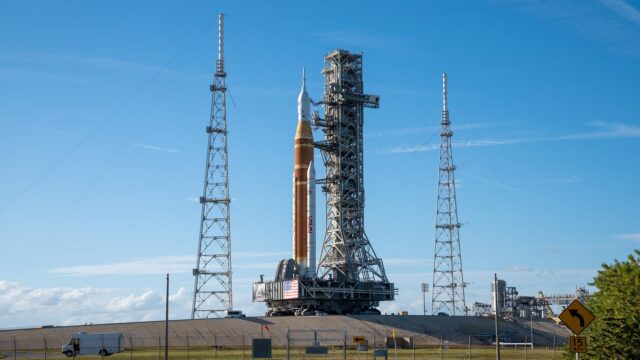Future-proofing a £17.5 billion space industry

Dr Louise Butt, Director of the UK’s largest regional space cluster, Space South Central, explores how the space sector is growing, where there are gaps in the workforce – and how these can be filled.
The UK space industry has tripled in size in the last decade to be worth £17.5 billion and employs nearly 49,000 people. A success story against a backdrop of economic doom and gloom, it’s no wonder that the government has ambitious plans to continue that growth.
Our understanding and innovations around space technology and exploration – and how we can use them to benefit life on Earth – are constantly evolving. That’s what makes the space sector so exciting, but it also creates a significant challenge: ensuring we have enough of the right people with the right skills – both now and in the future.
Thinking about the future – today
This year, the latest Space Sector Skills Survey and regional research commissioned by Space South Central confirmed what those of us in the industry had known for some time: that skills gaps, shortages and recruitment challenges are the biggest threats to the UK space industry.
The sector’s rapid pace of innovation compounds the situation as new technologies require new expertise or training: 50% of organisations expect their skills needs to change in the next three years, with increased demand for software, data, AI and machine learning employees. Competition with other sectors has also increased significantly, particularly in engineering and tech/IT recruitment.
However, thanks to research data and our close industry relationships, the good news is that we know what the issues are and how we can combat them.
Industry-led courses and training
We work with employers and education providers to build on existing training opportunities and develop new strategies to address space skills gaps. Colleges and universities want to deliver industry-relevant courses to maximise the employability of their students, and employers know the skills they need or will be in demand in the future, so it’s a win for both parties. This collaborative approach is fuelling new space-specific training opportunities.
Apprenticeships for school or college leavers, or people changing careers, give employers scope to address their company’s skills needs from the ground up. Nationally, Degree Apprenticeships are growing in popularity as an alternative to traditional undergraduate courses, and the University of Portsmouth is developing a Space Engineering Degree Apprenticeship.
Internships and work placements are important, both to offer first-hand experience for those interested in working in the space industry, and help employers find new talent. Earth-i (Guildford), Ultima Forma (Tadley) and Global Trust (Alresford) are among the Space South Central businesses that participate in the UK Space Agency’s Space Placements in INdustry (SPIN) scheme. Around 8% of all SPIN internships are hosted in our three counties.
By allowing access to their world-class facilities and expertise, universities can inspire further education students and offer training and project support to SMEs. Examples from our partner universities include the University of Portsmouth’s new NASA-inspired Mission Incubator, SETsquared at the Universities of Southampton and Surrey, and technical programme, SpaceCraft at the University of Surrey.
Alton College in Hampshire was recently awarded £½ million from the government’s Local Skills Improvement Fund to develop a new Space Technologies programme. The college is collaborating with Space South Central and the cluster’s business and academic community to give students hands-on experience with employers and the world-class facilities at the universities of Portsmouth and Surrey.
For existing space sector workers, several Space South Central companies offer continuing professional development (CPD) opportunities, including KISPE (Farnborough), SSTL (Guildford) and ASTA Technology (Portsmouth), which is one of only a handful of European Space Agency-certified soldering schools in Europe.
Raising awareness and challenging preconceptions about space careers
We need to dispel some of the preconceptions and myths surrounding space careers and raise awareness that:
- You don’t have to have a STEM background to work in the space sector.
- You don’t have to have a degree to work in the space sector.
- You don’t have to move abroad to start or grow your space career: in the Space South Central region alone, there are more than 160 space-related organisations.
- It’s never too late to bring your skills and experience into the space sector.
While there’ll always be a demand for STEM expertise, the range of space jobs and career paths is huge. Not everyone needs to be a rocket scientist or quantum physicist, and there are lots of roles that don’t require a STEM background. Whether you’re a school leaver or an experienced professional, space-related businesses rely on many disciplines, from hands-on engineering and manufacturing to software development, logistics, marketing and project management.
Targeted events help raise awareness of space career opportunities among those who may not have considered it before, and we’re planning to hold more following the success of our PICS-Space career summit. Held in partnership with satellite company SSTL, this free event connected around 100 post-doctoral researchers from a range of disciplines with space industry employers and career opportunities.
Inspiring the next generation
From national initiatives like I’m a Space Person and the Space for Everyone Tour to locally organised visits to schools, colleges and clubs, an increasing number of space-related organisations, large and small, are getting involved with outreach activities.
Space holds a natural fascination for children, but ambitions of having a space-related job are often viewed as an unlikely dream. Outreach brings space to life for children, parents and teachers and can introduce the idea that a space career is realistic and, in many parts of the UK, the opportunities could be on your doorstep.
Giving the space industry a voice
Space clusters lead and support local initiatives, but also represent their region’s interests nationally and internationally. In the summer, Space South Central hosted Science Minister, George Freeman, for a Skills Roundtable with some of our regional businesses and education providers to discuss skills and recruitment challenges and suggest solutions.
The government is committed to supporting the UK space industry and its growth, but to see the most impact from that support, the sector must continue to communicate what it needs. Space cluster membership and participating in surveys like the Space Sector Skills Survey and the Size and Health of the UK Space Industry gives organisations of all sizes the opportunity to shape future policy and funding.
Through up-to-date intelligence, listening to companies and building collaboration between businesses and education, we can develop a future-ready workforce and look forward to further growth in this thriving industry.
Subscribe to the FINN weekly newsletter
You may also be interested in:
Space clusters: Growing the UK space industry, one region at a time
















